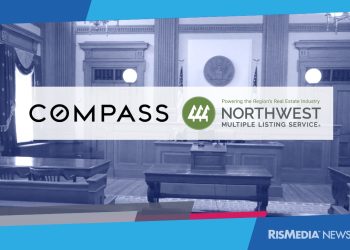Tax reform done right could yield savings and simplification that benefits average Americans, but history shows that misguided reforms can pose significant threats to the economy.
That’s the message the National Association of REALTORS® (NAR) brought to Congress recently as Iona Harrison, chair of NAR’s Federal Taxation Committee, testified before the Senate Finance Committee.
At the hearing, titled “Individual Tax Reform,” Harrison told senators that putting homeownership in the crosshairs of tax reform would strike at millions of American households.
“Real estate is the most widely held category of assets that American families own, and for many Americans, it’s the largest portion of their family’s net worth,” Harrison said. “As 64 percent of American households are owner-occupied, we believe that homeownership is not a special interest, but is rather a common interest.”
Over the past year, proposals for tax reform have included the elimination of important benefits like the state and local tax deduction, a near doubling of the standard deduction—which would all but nullify the benefits of the mortgage interest deduction—as well as caps to the MID.
REALTORS® have warned lawmakers that proposals to limit or nullify the tax incentives for homeownership could actually raise taxes on millions of middle-class homeowners while putting the value of their homes at risk.
In her testimony, Harrison responded to critics of real estate deductions, who often claim those deductions benefit only a small number of wealthy individuals. Harrison noted:
- 70 percent of the value of real property tax deductions in 2014 went to taxpayers with incomes less than $200,000;
- 53 percent of individuals claiming the itemized deduction for real estate taxes in 2014 earned less than $100,000;
- 7 million tax filers claimed a deduction for mortgage interest in 2015;
- Half of taxpayers with mortgages over $500,000 have AGI below $200,000., according to research conducted for NAR.
To that end, Harrison reminded the committee that tax reform efforts in the late 1980s were fraught with unintended consequences that delivered a broadside to the economy and only offered brief tax relief.
“When Congress last undertook major tax reform in 1986, it eliminated or significantly changed a large swath of tax provisions, including major real estate provisions, in order to lower rates, only to increase those rates just five years later in 1991,” said Harrison. “Most of the eliminated tax provisions never returned and in the case of real estate, a major recession followed.”
Despite the REALTORS®‘ concerns raised during the hearing, Harrison reminded Senators that REALTORS® do support tax reform.
“Homeowners already pay 83 percent of all federal income taxes, and reform that raises their taxes is a failed effort,” said Harrison. “But NAR supports the goals of simplification and structural improvements for the tax system, and individual tax rates should be as low as possible while still providing for a balanced fiscal policy. We simply believe that to achieve these goals, Congress should commit first to doing no harm to the common interest that homeownership provides.”
For more information, please visit www.nar.realtor.
For the latest real estate news and trends, bookmark RISMedia.com.











